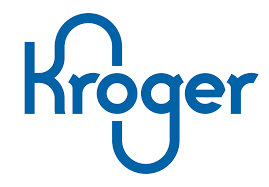Analyzing the potential impacts of Kroger-Albertsons merger on Colorado’s Western Slope
In the ever-evolving landscape of grocery retail, the potential merger between Kroger, the parent company of City Market, and Albertsons, the parent company of Safeway, stands poised to bring minimal impacts to Colorado’s Western Slope.

The merger is backed by a divestiture plan with C&S Wholesale Grocers that “ensures no stores will close as a result of the merger and that all frontline associates will remain employed, all existing collective bargaining agreements will continue, and associates will continue to receive industry-leading healthcare and pension benefits alongside bargained-for wages,” according to an Albertsons press release. Kroger has made the same assurances.
The divestiture plan also promises tangible benefits for the state and a commitment to the community and the workforce. Since day one of the announcement, C&S said they are committed to contributing $29.6 million to community giving, donating $15.4 million in meals to combat hunger, and investing $19.1 million in efforts to end hunger. This commitment to social responsibility aligns with the values of the community and ensures that the merger benefits extend beyond the business realm.

However, as with any major business merger, there are concerns, and Colorado’s Gazette newspapers recently published these dueling opinions:
Chris Cargill, the president of Mountain States Policy Center, is supportive of the merger from his perspective of viewing the American grocery retail landscape shifting as a whole, with online grocery shopping notably increasing in the last decade.
“Online and warehouse competition has changed everything — and it has helped lower the cost of many goods,” Cargill wrote. “Walmart, Amazon and Costco are now the major players in the grocery marketplace. Chances are, you’ve purchased an item at one of the three over the past 30 days. In fact, Walmart/Sam’s Club make up nearly a third — 30% — of the U.S. grocery market share. Costco tallies another 7%.
“Amazon is moving quickly and accounts for more than 5%. And consider this: Amazon Prime, Walmart+ and Costco have more than 250 million subscriptions. Even if the Albertsons-Kroger merger proceeds, it would account for just 9% of nationwide sales, according to the International Center for Law and Economics.”
On the other side, Patience Kabwasa, the Executive Director of Food to Power, expresses concerns about the merger’s impact:
“Locally, Kroger and Safeway (Albertsons) are the major grocery retailers. Consolidating would increase their (existing) monopoly, negatively affecting food availability, affordability and accessibility in our city. Reducing or eliminating competition in the conglomerate grocery markets means regular citizens will pay the price of less consumer choice, weakened economic prospects for farmers, and economic security for grocery store workers,” Kabwasa wrote.
“Corporate profit margins usually affect low-income communities the most,” Kabwasa added. “This summer and fall, southeast Colorado Springs experienced firsthand the impact on the local community when a grocery store closes. Just food access was a problem before the Hancock and Academy King Soopers closed, so it will remain after its recent reopening. We need grocery stores, yes, and we also need solutions that target the root causes of food inequity: income, housing and transportation.”
The Colorado Attorney General’s Office, while acknowledging the potential advantages, has underscored the need for vigilant oversight to ensure that this commitment translates into tangible job security for frontline workers.
Earlier this month, the Federal Trade Commission (FTC) Chair, Lina Khan, and Colorado Attorney General Phil Weiser held a listening session regarding the proposed merger of Kroger and Albertsons. The hour-long session in Denver saw an overwhelmingly opposed audience, mainly comprised of union members from grocery stores and food suppliers. Attorney General Weiser is actively seeking public comments and consumer opinions on the merger, inviting community members to share their thoughts at coag.gov/grocerymerger.


Latest posts by David O. Williams (see all)
- During National Small Business Month, Target, DreamSpring put funding bullseye on underrepresented communities in Denver area - May 29, 2025
- Colorado senator urges Supreme Court to hold Trump administration in contempt on deportations - April 19, 2025
- Conductor who brought back Colorado ski train wants to use rail to save state’s highways for skiing - March 20, 2025

You must be logged in to post a comment Login